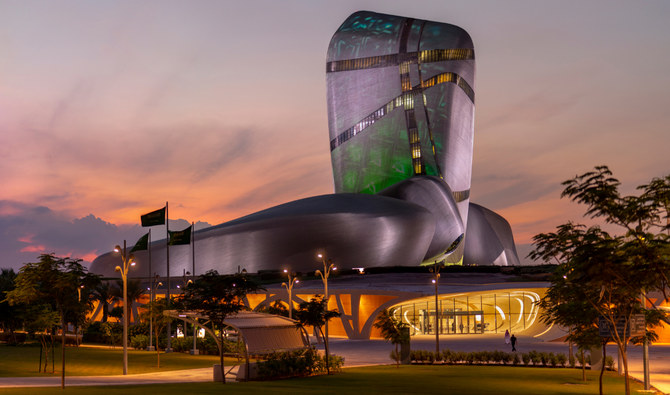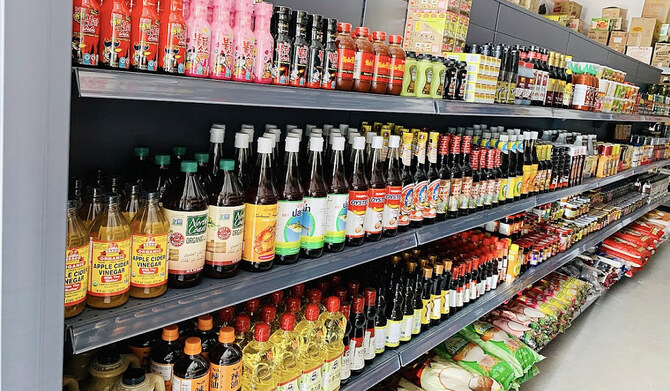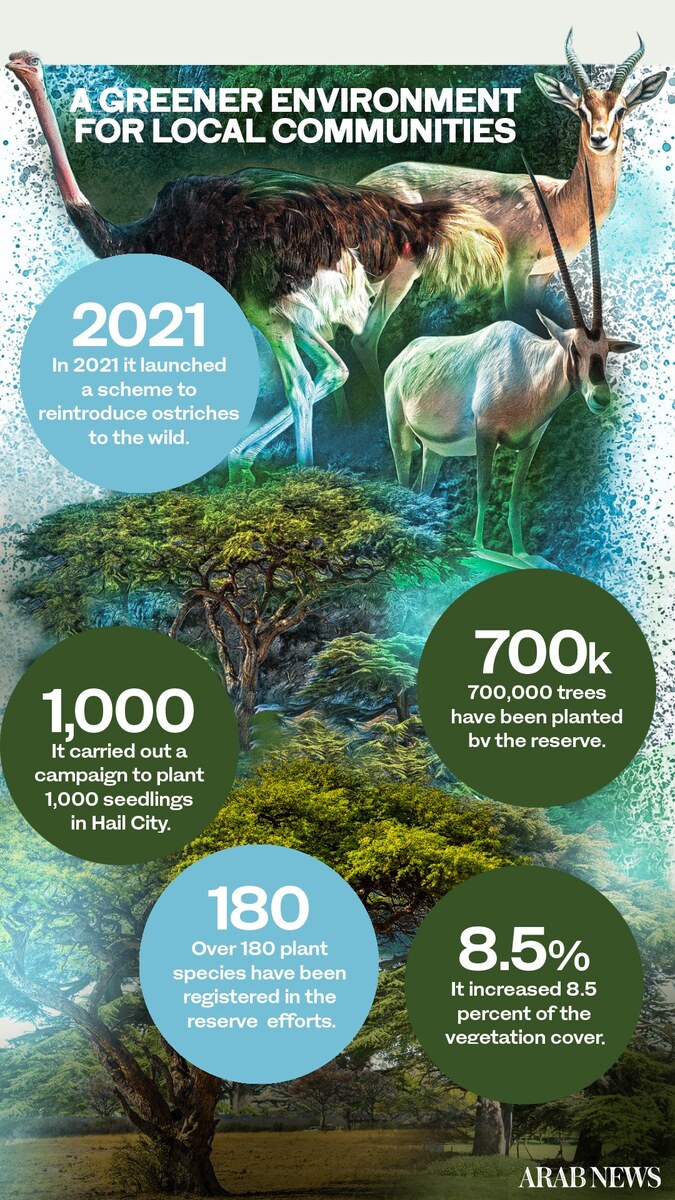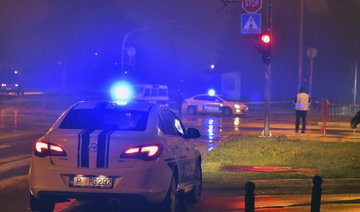RIYADH: Saudi Arabia’s King Abdulaziz Center for World Culture, also known as Ithra, presented more than 7,000 programs and initiatives in art, knowledge, culture, creativity and society this year, and welcomed more than 500,000 local and international visitors, the organization said.
In addition, about 4,000 male and female volunteers participated in the center’s local, regional and international events and activities, contributing 13,000 hours of work.
Ithra won five local and international awards in the past 12 months, including the 2021 Cultural Institutes Award in the private sector track by Saudi Arabia’s Ministry of Culture. Ithra was also recognized with three prestigious accolades from MarCom, one of the largest and most respected creative competitions in the world. Among 6,000 entries, Ithra achieved platinum in the ‘Team Achievement’ and ‘Pro Bono’ categories, and gold in the ‘Social Content’ category for its efforts on World Book Day.
The center was also recognized locally by the Ministry of Human Resources and Social Development with numerous awards, including the first volunteer unit to implement the national volunteering standard, the first center to introduce volunteering in the private sector, and a Gold “Mowaamah” certification, for the accessible ecosystem that the center provides to support those with special needs, in accordance with their required standards and needs.
Another research initiative that Ithra launched is its flagship digital wellbeing platform that highlights the researches and conversations related to digital wellbeing. Sync, a project commissioned with an extensive global study exploring the role and impact of technology on the daily lives of the general public. Canvassing 15,000 people in 30 countries, the results of the study inform Ithra’s Sync project, in addition to being a resource for all stakeholders, including the public, social researchers, content producers and providers, and policymakers. The project includes a yearly summit with international and local speakers which will inaugurate early 2022.
This year, Ithra also piloted its inaugural Creative Solutions program with over 1,000 local applicants, launched to boost Saudi’s creative economy through empowering digital content creation in immersive technologies.
Ithra’s annual flagship creativity festival, held under the theme Tools — Crafting Creativity, Tanween 2021 attracted more than 25,000 visitors over the course of three weeks. The festival featured international and local experts in 30 talks, 10 masterclasses, 7 workshops and 4 big experiences. One of the main features of Tanween was the Smartphone Orchestra, which sorted the public based on the data they provided themselves in this interactive and immersive activity. Another highlight featured mass drone swarms that interacted with the audience in one of the largest co-created drone/human light paintings ever made.
Currently on display at the first Diriyah Contemporary Art Biennale, Ithra Art Prize-winner Nadia Kaabi-Linke’s piece underlines the new Pan-Arab direction of the prize. This is the first year one of the most significant art prizes in the region is open to regional artists, while simultaneously representing a homecoming for the award which was presented at Art Dubai for its first three editions. Consisting of 19 canvasses nearly 20 meters long together, E Pluribus Unum – A Modern Fossil is described as a metaphor for modern times.
Ithra’s investment in the future saw the announcement earlier this month that the F1 in Schools program is coming to Saudi Arabia. Formula One’s global educational initiative will see some of the Kingdom’s brightest young minds join peers from 26,000 schools in 51 other countries as they showcase their creative skills and compete to reach the Aramco F1 in Schools World Finals in 2022. The world’s largest science, technology, engineering and mathematics (STEM) challenge highlights Ithra’s mandate to champion creative potential and inspire innovation among Saudi talent and youth.
Challenging visitors to channel their creativity towards Islamic heritage, Ithra and the Abdullatif Al-Fozan Award for Mosque Architecture launched an opportunity for people to reimagine masjids during its recently concluded three-day conference The Mosque: Innovation in Object, Form and Function. The first conference of its kind, the three-day gathering featured global experts exploring the history, art and architecture of Islamic cultures and culminated in the announcement of the Mosque of the Future challenge.
The conference complemented the ongoing exhibition Shatr Al-Masjid: The Art of Orientation. Featuring the largest collection of Islamic art masterpieces ever displayed in the Kingdom, it is the result of unprecedented partnerships on international and national level, including with the Supreme Council of Egyptian Antiquities. In another first, this year marked the opening of Ithra’s most international art exhibition yet. Featuring 26 artworks by 20 artists, including site-specific installations and commissioned pieces created specifically for and at the center, Seeing & Perceiving explores how observers perceive artworks in different ways. Testament to Ithra’s support of local talent, Saudi open call winner Walaa Fadul’s piece Light Upon Light, a composition of six hologram fans and 3D holographic visuals, is exhibited alongside some of the biggest names in the contemporary art world, including Carsten Höller, Aisha Khalid and Robert Irwin.
Using contemporary art to serve a bigger purpose, Ithra partnered with environmental sustainability leader Arcadia Earth for its Terra exhibition. The exhibit harnessed the power of art to create memorable experiences while taking a localized view on global challenges such as water scarcity, air quality and plastic pollution. Another first in Saudi, the exhibition aligns with the Kingdom’s environmental goals set out in the 2030 Agenda for Sustainable Development.
While Ithra’s two-day Learning Beyond conference highlighted best practices in the education sector by harnessing innovative, accessible and diverse resources to deliver a tangible impact on students’ development, the center also organized the scientific communication program PiCon in its first edition in conjunction with the celebration of the International Pi Day to provide an opportunity for innovators and those interested in science and technology to meetup with local and international speakers and experts, aimed to elevate the scientific movement for all ages.
Ithra also cemented its reputation as a leading Saudi film producer with roadshows at the 74th Cannes International Film Festival and at the Red Sea International Film Festival, the Kingdom’s first international film fair. Produced under the Ithra Film Productions banner, celebrated Egyptian screenwriter and producer Mohamed Hefzy’s Sea of Sands and Saudi award-winning independent filmmaker Khalid Fahad’s Valley Road are both scheduled for release in 2023. The feature-length documentary film Anti-Cinema, meanwhile, is currently in post-production and is expected to hit the international film festival circuit shortly. Winner of the Ithra Content Commission Initiative, Ali Saeed and Hassan Saeed’s film brings Saudi Arabia’s film history to the big screen.
Furthermore, Ithra is excited about the opening of registrations for Sea of Sands’ shadowing program, linked to the center’s commitment to nurture and develop talent across the Kingdom’s creative industries. The training program is designed to take Saudi’s film industry to the next level, and will see 10 aspiring filmmakers joining the production of the film and learn from well-established filmmakers and crew.







































